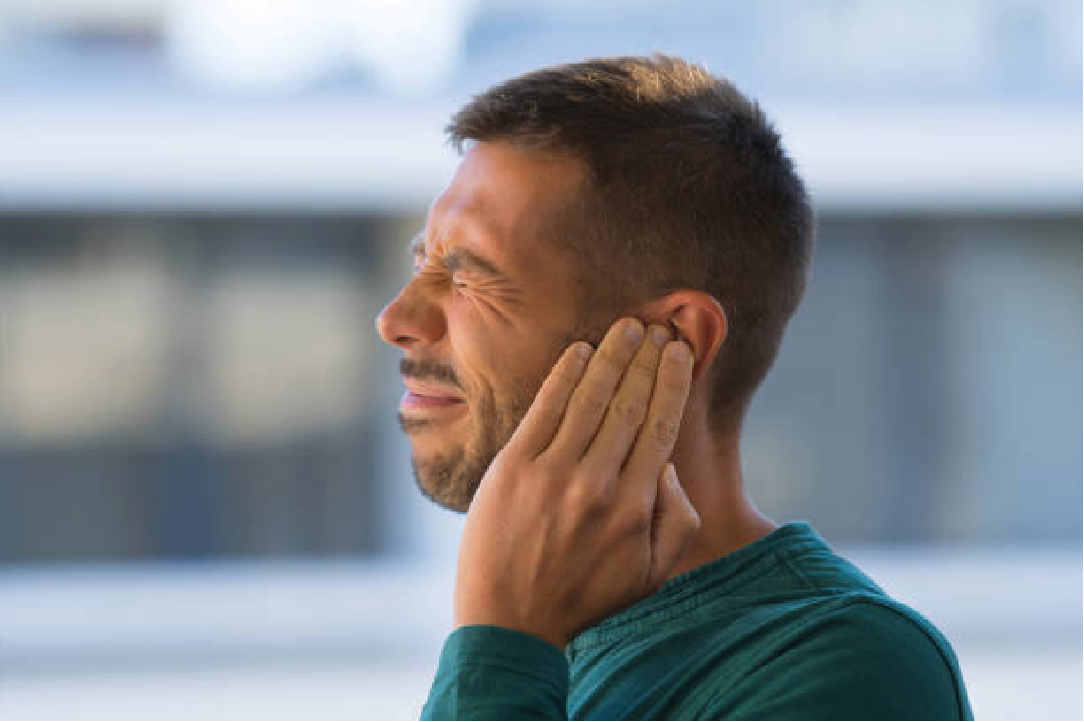Tinnitus, often described as a persistent ringing, buzzing, or whistling sound in the ears, affects millions of people worldwide. This audiological condition can be both distressing and debilitating, impacting one's quality of life and overall well-being. While tinnitus has no cure, there are various strategies and treatments available to help individuals manage and cope with its symptoms. In this article, we will explore different approaches to dealing with tinnitus, providing guidance on finding relief and regaining peace in the midst of this challenging condition.
Understanding Tinnitus
Tinnitus is not a disease itself, but rather a symptom of an underlying condition. It can be caused by a range of factors, including exposure to loud noises, age-related hearing loss, earwax buildup, certain medications, and even stress. The perception of sound, when no external sound source is present, can be highly disruptive and can vary from person to person in terms of volume, pitch, and duration.
Seeking Professional Help
If you're experiencing tinnitus symptoms, it's crucial to seek professional help from an audiologist or an otolaryngologist (ear, nose, and throat specialist). They can conduct a thorough evaluation to determine the underlying cause of your tinnitus and recommend appropriate treatment options. Remember, a proper diagnosis is essential for tailoring an effective management plan.
Sound Therapy
Sound therapy is a commonly recommended approach for managing tinnitus. It aims to provide relief by introducing external sounds to mask or distract from the internal perception of tinnitus. This can be achieved through various methods:
White noise machines or apps: These devices generate a constant, soothing background noise that helps to reduce the prominence of tinnitus sounds.
Hearing aids: If hearing loss is also present, hearing aids can amplify external sounds while providing additional sound therapy features, such as masking or amplification of specific frequencies to alleviate tinnitus symptoms.
Sound masking devices: These wearable devices produce low-level sounds, such as gentle waves or soft music, to divert attention away from tinnitus sounds.
Lifestyle Adjustments
Certain lifestyle adjustments can significantly impact tinnitus symptoms and improve overall well-being. Consider incorporating the following practices into your daily routine:
Manage stress: Stress can exacerbate tinnitus symptoms. Engage in stress-reducing activities such as exercise, meditation, or hobbies that bring you joy.
Protect your ears: Limit exposure to loud noises and wear ear protection when in noisy environments. This can help prevent further damage to your hearing and reduce tinnitus intensity.
Healthy sleep habits: Establish a regular sleep routine and create a conducive sleep environment. Use soothing sounds or white noise machines to promote better sleep and mask tinnitus sounds.
Limit caffeine and alcohol: Both caffeine and alcohol have been reported to worsen tinnitus symptoms in some individuals. Monitor your intake and consider reducing or eliminating them from your diet.
Cognitive Behavioral Therapy (CBT)
Tinnitus can have a significant impact on mental health, leading to anxiety, depression, and sleep disturbances. Cognitive Behavioral Therapy (CBT) is a therapeutic approach that aims to change negative thought patterns and behaviors associated with tinnitus. Through counseling and specific techniques, CBT can help individuals reframe their perception of tinnitus, reduce distress, and improve their overall emotional well-being.
Support and Education
Living with tinnitus can be challenging, and it's essential to seek support from friends, family, or support groups. Connecting with others who understand your struggles can provide a sense of community and reassurance. Educate yourself about tinnitus through reliable sources and stay informed about the latest research and treatment options. Being knowledgeable empowers you to make informed decisions and actively participate in managing your tinnitus.
In conclusion, while tinnitus may not yet have a definitive cure, there are numerous strategies available to help individuals effectively manage and cope with its symptoms. Seeking professional help, utilizing sound therapy, making lifestyle adjustments, exploring cognitive behavioral therapy, and seeking support are all crucial steps toward finding relief and regaining peace in the midst of tinnitus. Remember, with the right combination of strategies and a positive mindset, it is possible to lead a fulfilling life despite tinnitus's presence.
Understanding Tinnitus
Tinnitus is not a disease itself, but rather a symptom of an underlying condition. It can be caused by a range of factors, including exposure to loud noises, age-related hearing loss, earwax buildup, certain medications, and even stress. The perception of sound, when no external sound source is present, can be highly disruptive and can vary from person to person in terms of volume, pitch, and duration.
Seeking Professional Help
If you're experiencing tinnitus symptoms, it's crucial to seek professional help from an audiologist or an otolaryngologist (ear, nose, and throat specialist). They can conduct a thorough evaluation to determine the underlying cause of your tinnitus and recommend appropriate treatment options. Remember, a proper diagnosis is essential for tailoring an effective management plan.
Sound Therapy
Sound therapy is a commonly recommended approach for managing tinnitus. It aims to provide relief by introducing external sounds to mask or distract from the internal perception of tinnitus. This can be achieved through various methods:
White noise machines or apps: These devices generate a constant, soothing background noise that helps to reduce the prominence of tinnitus sounds.
Hearing aids: If hearing loss is also present, hearing aids can amplify external sounds while providing additional sound therapy features, such as masking or amplification of specific frequencies to alleviate tinnitus symptoms.
Sound masking devices: These wearable devices produce low-level sounds, such as gentle waves or soft music, to divert attention away from tinnitus sounds.
Lifestyle Adjustments
Certain lifestyle adjustments can significantly impact tinnitus symptoms and improve overall well-being. Consider incorporating the following practices into your daily routine:
Manage stress: Stress can exacerbate tinnitus symptoms. Engage in stress-reducing activities such as exercise, meditation, or hobbies that bring you joy.
Protect your ears: Limit exposure to loud noises and wear ear protection when in noisy environments. This can help prevent further damage to your hearing and reduce tinnitus intensity.
Healthy sleep habits: Establish a regular sleep routine and create a conducive sleep environment. Use soothing sounds or white noise machines to promote better sleep and mask tinnitus sounds.
Limit caffeine and alcohol: Both caffeine and alcohol have been reported to worsen tinnitus symptoms in some individuals. Monitor your intake and consider reducing or eliminating them from your diet.
Cognitive Behavioral Therapy (CBT)
Tinnitus can have a significant impact on mental health, leading to anxiety, depression, and sleep disturbances. Cognitive Behavioral Therapy (CBT) is a therapeutic approach that aims to change negative thought patterns and behaviors associated with tinnitus. Through counseling and specific techniques, CBT can help individuals reframe their perception of tinnitus, reduce distress, and improve their overall emotional well-being.
Support and Education
Living with tinnitus can be challenging, and it's essential to seek support from friends, family, or support groups. Connecting with others who understand your struggles can provide a sense of community and reassurance. Educate yourself about tinnitus through reliable sources and stay informed about the latest research and treatment options. Being knowledgeable empowers you to make informed decisions and actively participate in managing your tinnitus.
In conclusion, while tinnitus may not yet have a definitive cure, there are numerous strategies available to help individuals effectively manage and cope with its symptoms. Seeking professional help, utilizing sound therapy, making lifestyle adjustments, exploring cognitive behavioral therapy, and seeking support are all crucial steps toward finding relief and regaining peace in the midst of tinnitus. Remember, with the right combination of strategies and a positive mindset, it is possible to lead a fulfilling life despite tinnitus's presence.



Leave a comment
This site is protected by reCAPTCHA and the Google Privacy Policy and Terms of Service apply.